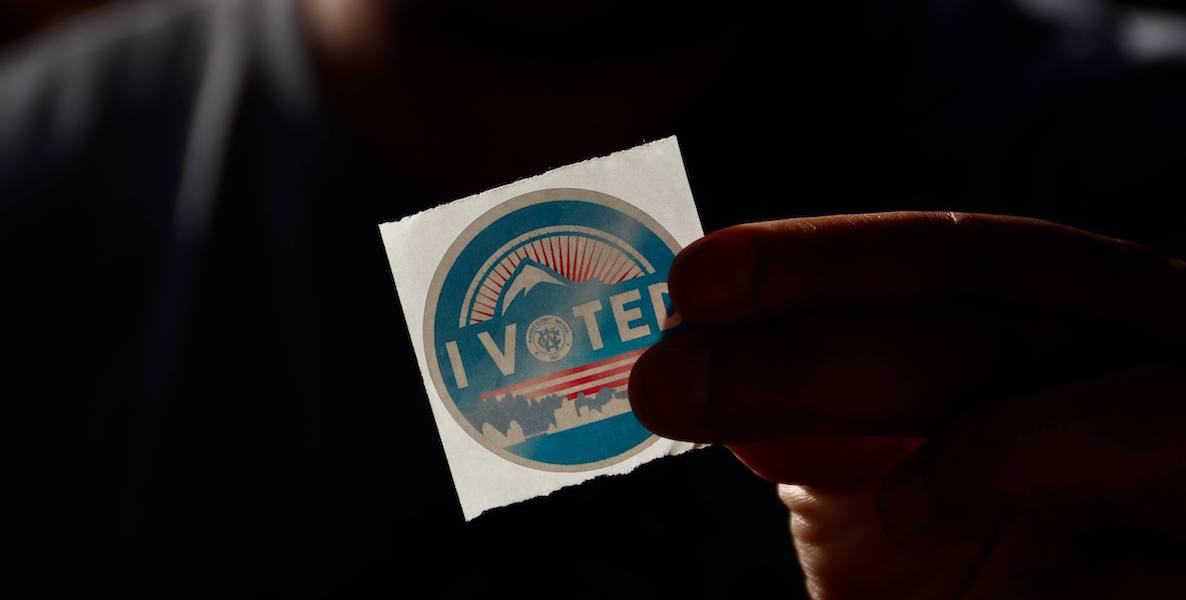It’s election season again, Philadelphia!
Mail-in ballots in Pennsylvania are being printed as you read this, and they should be sliding into your mailbox soon if you registered to vote by mail. That’s why we wanted to go ahead and share this voters’ guide with you, so you can be ready to check those boxes, whether you’re doing it at home or waiting to head to the polls on Tuesday, November 2.
First a few important dates: You must register by October 18, 2021, to vote in the November 2 general election. You still have time to request a mail-in ballot—as long as you do it by October 26. Our guide to how to vote in Philadelphia lays out more information about that.
Polls will be open on November 2, 2021, from 7am to 8pm. You know the drill—you are able to vote as long as you get in line by 8pm, even if it takes you hours to get inside.
During this election cycle, Philadelphians will be deciding on district attorney and city controller, and a slew of judges running for seats in state and local courts. There are also four ballot questions concerning changes in our city charter—including one vote on cannabis legalization.
With this voters’ guide, we aim to make your voting process seamless, by laying out everything that will be on your ballot below.
Want to skip ahead? See who’s on the ballot in the PA 2021 primary for …
- District Attorney of Philadelphia
- City Controller of Philadelphia
- Supreme Court of Pennsylvania
- Superior Court of Pennsylvania
- Commonwealth Court
- PA Court of Common Pleas
- Philadelphia Municipal Court
- Judge and Inspector of Election
- Judicial Retentions
- And check out your four ballot questions
DISTRICT ATTORNEY (VOTE FOR ONE)
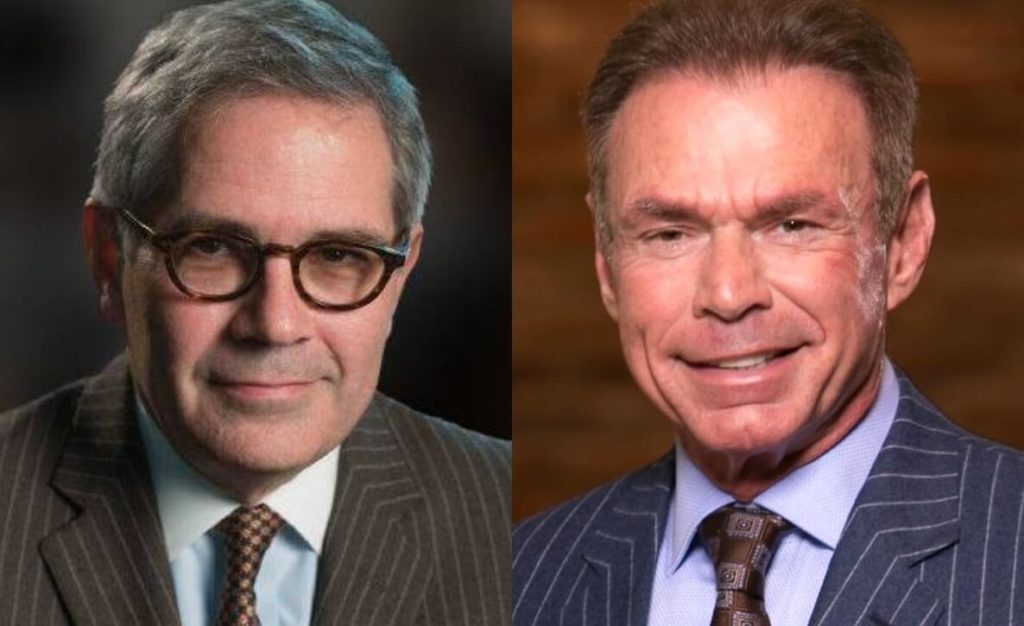
As chief prosecutor for the City, the district attorney determines what crimes will be prosecuted, and the severity of the charges. You may ask, “Don’t judges have the final say in sentencing?” Sure, if the case goes to trial. But the vast majority of cases are actually decided by plea bargain, meaning the D.A.’s office has an incredible amount of power and discretion.
DEMOCRAT
- Larry Krasner (incumbent): Longtime civil rights attorney previously known for suing the police 75 times, Larry Krasner won his first election in 2017 on a “progressive prosecutor” platform, with an ambitious—and controversial—slate of criminal justice reforms. His tenure has put to the test the ability to reform the system and keep residents safe, as homicides over the last few years have skyrocketed to levels not seen for decades.
REPUBLICAN
- Chuck Peruto: A longtime criminal defense attorney, Democrat-turned-Republican Peruto announced his candidacy in February with an attack on Krasner for being out of touch and ineffective in keeping the people of Philadelphia safe, and with skepticism that Vega can win the primary. Peruto himself is no stranger to controversy, most famously for the so-called “girl in the bathtub” incident in which his legal assistant/girlfriend accidentally died at his house while he was away. (The episode prompted a grand jury investigation that resulted in no charges being filed.)
Recent coverage about the district attorney candidates
- Kenney and local leaders play the blame game while body bags pile up
- Has D.A Krasner really reformed prosecution in Philadelphia?
- High-profile Philly lawyer Chuck Peruto is challenging DA Larry Krasner as a Republican
CITY CONTROLLER (VOTE FOR ONE)
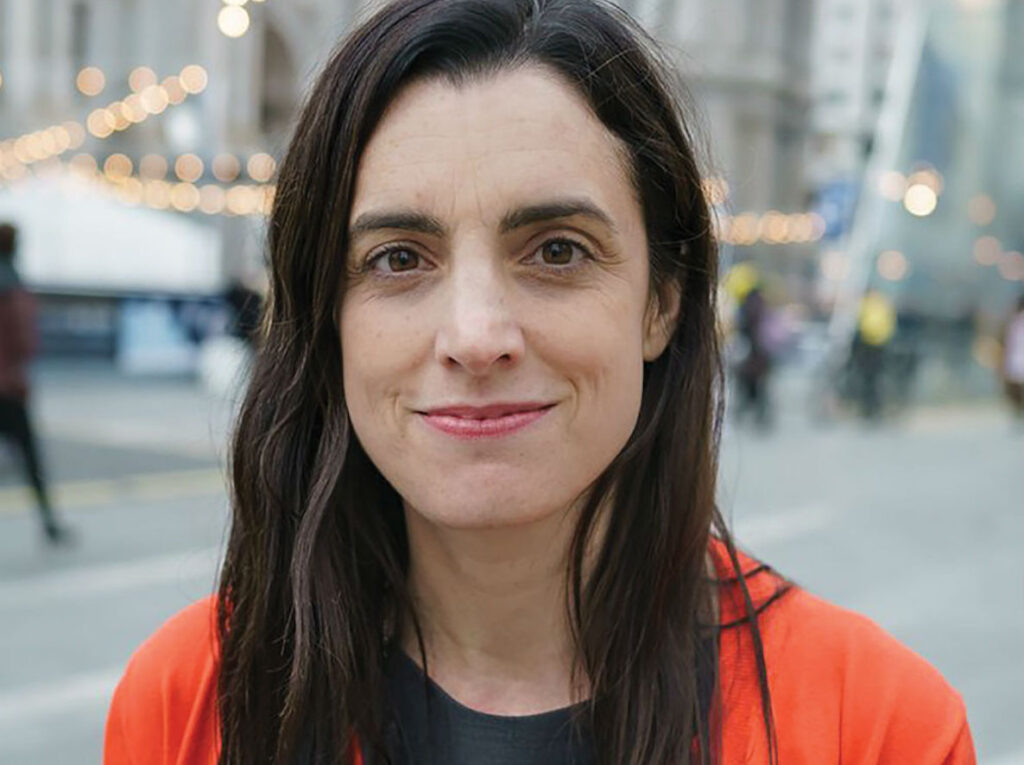
The city controller is the top fiscal watchdog of the city, auditing expenditures of the city government. This race tends to take a back seat to the more high-profile district attorney contest, but it’s incredibly important.
DEMOCRAT
- Rebecca Rhynhart (incumbent): In her nearly four years as city controller, Rebecca Rhynhart has arguably been the most consistent and fiercest critic of the Kenney administration. She has used the subpoena power of her office to issue reports—like the recent devastating investigation of the city’s law enforcement response to the post-George Floyd protests—that have been substantive, despite Kenney’s accusation that Rhynhart is playing politics. Rhynhart is arguably the city’s most prominent reformer, as evidenced by her role on the advisory council of Accelerator for America, a group of mayors and civic leaders, founded by Los Angeles Mayor Eric Garcetti, that bills itself as “the R&D arm of cities and mayors.”
REPUBLICAN
- No Republican is on the ballot.
Recent coverage about the city controller candidate
- City leaders have a plan for fighting gun violence. Why won’t Kenney listen?
- Rebecca Rhynhart is cruising to reelection. Can she be Philly mayor next?
- Rebecca Rhynhart released an alternative to Mayor Kenney’s revised tax-and-cut budget. Will City Council listen?
- In a Citizen virtual town hall, the city’s financial watchdog shared one key to our future success: total transparency
JUSTICE OF THE SUPREME COURT (VOTE FOR ONE)
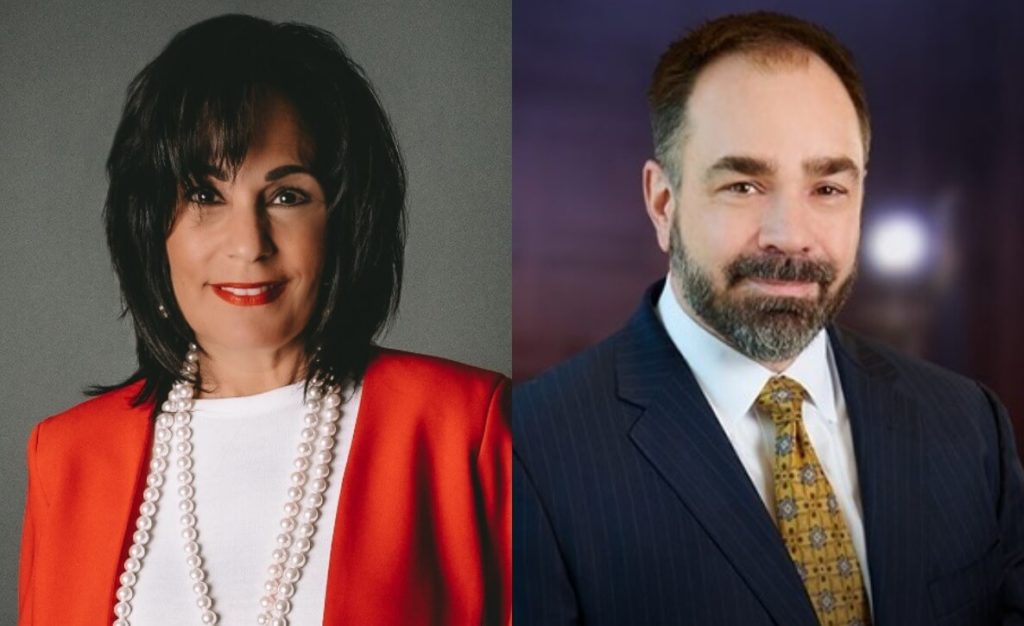
The Supreme Court is the highest court in the Commonwealth and the oldest appellate court in the nation. There is one vacancy on this court, which is known as the “court of last resort” and can assume jurisdiction over any case in the PA court system. Seven justices serve on the Court and their job is to make the final judgment in interpreting PA’s laws and Constitution. Button numbers are displayed in parenthesis for your convenience.
DEMOCRAT
- Maria McLaughlin (highly recommended by both the Philadelphia and Pennsylvania bar associations) (101)
REPUBLICAN
- Kevin Brobson (highly recommended by both the Philadelphia and Pennsylvania bar associations) (201)
JUDGE OF THE SUPERIOR COURT (VOTE FOR ONE)
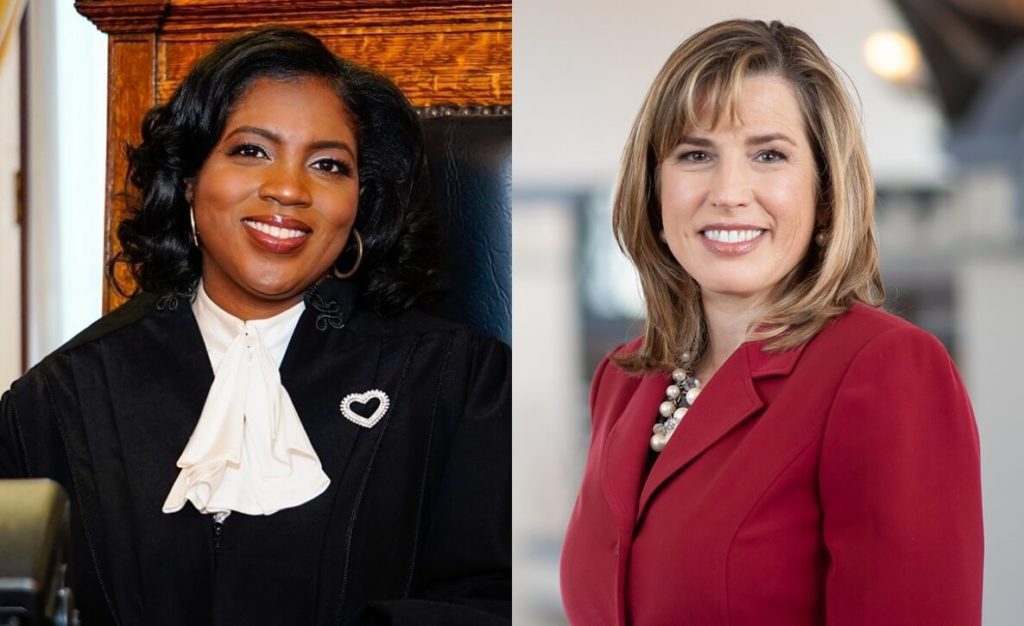
There is one vacancy open in 2021 on the Superior Court of Pennsylvania, which serves as the appeals court for most citizens and businesses. It is one of the busiest intermediate appellate courts in the country, receiving hundreds of thousands of filings per year and deciding more than 8,000 individual cases.
DEMOCRAT
- Timika Lane (recommended by both the Philadelphia and Pennsylvania bar associations) (102)
REPUBLICAN
- Megan Sullivan (recommended by the Pennsylvania Bar Association) (202)
JUDGE OF THE COMMONWEALTH COURT (VOTE FOR NO MORE THAN TWO)
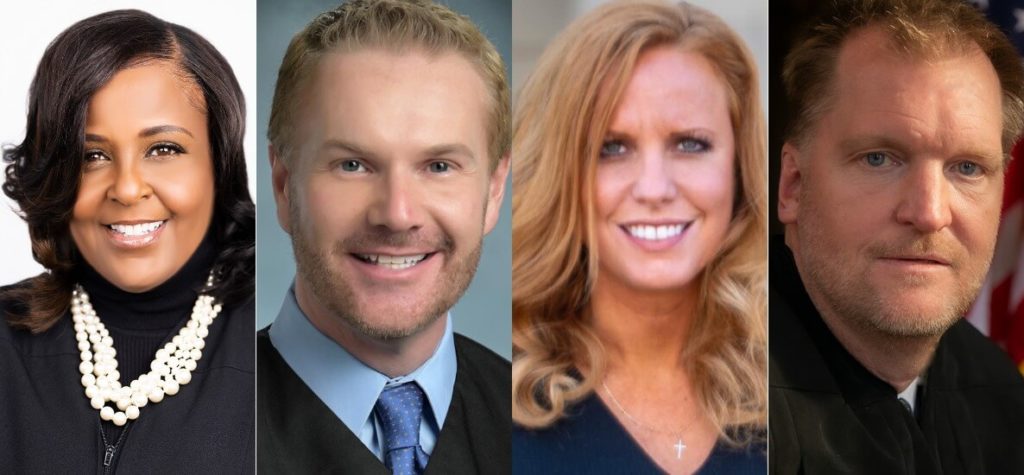
There are two vacancies on the Commonwealth Court, which hears civil cases involving state or local government. It also hears appeals and sometimes sits as a trial court in certain cases brought by or against the Commonwealth, such as a constitutional challenge to a state law or a tax dispute. Pennsylvania has the only court like it in the country.
DEMOCRAT
- Lori A Dumas (read Better Civics’ Q&A with Dumas) (recommended by both the Philadelphia and Pennsylvania bar associations) (103)
- David Lee Spurgeon (highly recommended by the PA Bar Association) (104)
REPUBLICAN
- Stacy Marie Wallace (not recommended by the PA Bar Association (203)
- Drew Crompton (recommended by the PA Bar Association) (204)
JUDGE OF THE COURT OF COMMON PLEAS (VOTE FOR NO MORE THAN 12)
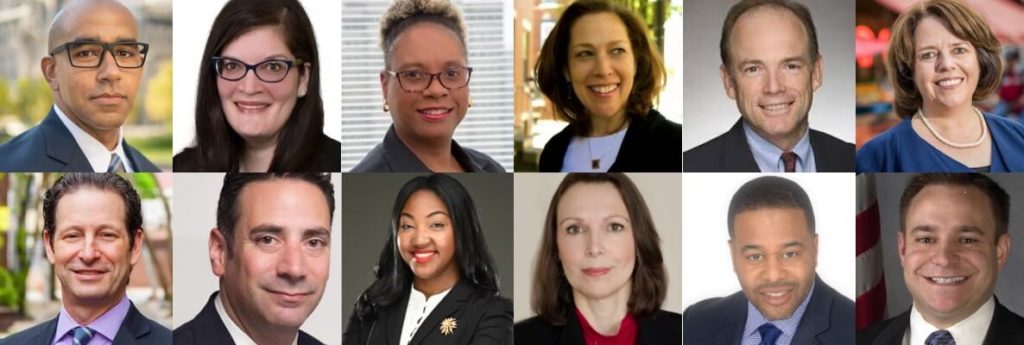
There are 12 vacancies on this court, which is known as a “general trial jurisdiction court,” because the Courts of Common Pleas are organized into 60 judicial districts. This court is responsible for hearing criminal and civil cases, including those involving families and children; hearing appeals from the minor courts and appeals not exclusively assigned to another court; and holding civil, criminal and jury trials. Sample court cases include divorce, property division, alimony, custody and child support, paternity and protection orders.
Read more about the candidates running for judge of the Court of Common Pleas in our comprehensive PA judicial election guide.
DEMOCRAT
- Nick Kamau (highly recommended by the Philadelphia Bar Association) (105)
- Wendi Barish (recommended) (106)
- Cateria R. McCabe (recommended) (107)
- Betsy Wahl (recommended) (108)
- Chris Hall (highly recommended) (109)
- Michele Hangley (highly recommended) (110)
- Craig Levin (recommended) (111)
- Daniel Sulman (recommended) (112)
- Monica N. Gibbs (not evaluated) (113)
- Leanne L. Litwin (not evaluated) (114)
- Mark Moore (highly recommended) (115)
- John P. Sabatina Jr. (not evaluated) (116)
REPUBLICAN
- There is no Republican on the ballot.
JUDGE OF THE MUNICIPAL COURT (VOTE FOR NO MORE THAN FIVE)
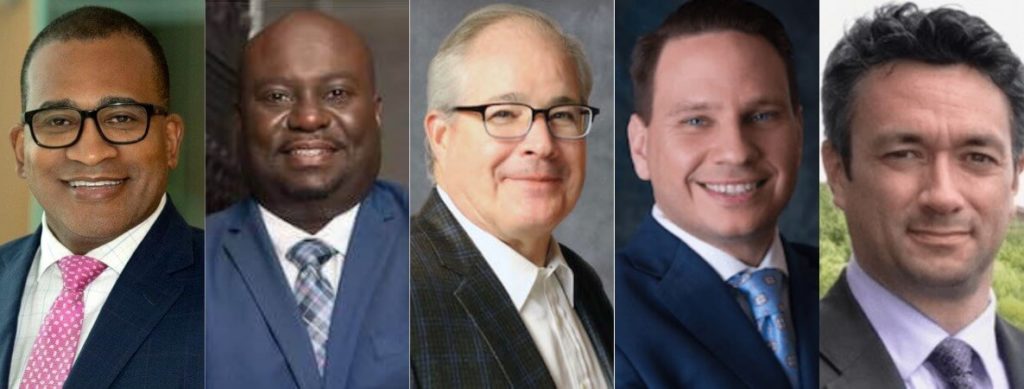
There are five vacancies on the Philadelphia Municipal Court, which is responsible for determining whether serious criminal cases go to the Court of Common Pleas; preliminary arraignments and hearings; and setting and accepting bail, except in murder or voluntary manslaughter cases. Some sample court cases include traffic tickets, landlord-tenant disputes, underage drinking.
Read more about the candidates running for a seat on the Philadelphia Municipal Court in our comprehensive PA judicial election guide.
DEMOCRAT
-
- Gregory Yorgey-Girdy (recommended by the Philadelphia Bar Association) (117)
- Michael Lambert (not recommended) (118)
- George Twardy (recommended) (119)
- Christian A. DiCicco (not evaluated) (120)
- Fran McCloskey (recommended) (121)
REPUBLICAN
-
- There is no Republican on the ballot.
JUDGE AND INSPECTOR OF ELECTION (VOTE FOR ONE)
These folks are your neighbors, and must live in your voting division (e.g. 2-06 means Ward 2, Division 6). Two inspectors in each division make sure the polling machines are up and running on time, and one judge of election ensures everything is set up in compliance with state and local laws. There are 1,686 divisions in the city, so we suggest checking out this PDF page to find all the candidates running in your district.
JUDICIAL RETENTIONS
On the final page of your ballot, you’ll be asked if the following incumbent judges should be retained for another term. (You can find an explainer about retention votes in Pennsylvania here.) You’ll simply answer “yes” or “no” about whether or not you think they should keep their seat. Below, we’ve provided links for more information.
NOTE: All judges are recommended for retention by the Philadelphia Bar Association, except where noted.
SUPERIOR COURT
- John T. Bender (also recommended by the Pennsylvania Bar Association)
- Mary Jane Bowes (also recommended by the Pennsylvania Bar Association)
COMMONWEALTH COURT
- Anne E. Covey (not recommended for retention by the PA Bar Association)
- Renee Cohn Jubelirer (recommended for retention by the Pennsylvania Bar Association)
COURT OF COMMON PLEAS
- Diana L. Anhalt
- Denis P. Cohen
- Rose Marie Defino-Nastasi
- Charles A. Ehrlich
- Angelo J. Foglietta
- Jonathan Q. Irvine
- Elizabeth Jackson
- Vincent L. Johnson
- Sean F. Kennedy
- Barbara A. McDermott
- Margaret T. Murphy
- George W. Overton
- Edward C. Wright
MUNICIPAL COURT
- Frank T. Brady
- Patrick Dugan
- Charles Hayden
- Christine M. Hope
- Sharon Williams Losier (recommendation pending)
- Joffie C. Pittman III
- Craig M. Washington
BALLOT MEASURES
Philadelphia voters will weigh in on four ballot questions in the 2021 general election. Below, we offer the text you’ll find on your ballot, plus a plain-English explainer provided by the Philadelphia city commissioners.
Question 1: Proposed Charter Change 1 (Bill No. 210206)
Shall the Philadelphia Home Rule Charter be amended to call upon the Pennsylvania General Assembly and the Governor to pass legislation that would decriminalize, regulate, and tax the use, and sale to adults aged 21 years or older, of cannabis for non-medical purposes?
PLAIN ENGLISH EXPLAINER: If you vote “Yes” on this ballot question, it means you want to change the City’s Charter so that it includes a statement urging the Pennsylvania legislature and governor to adopt laws to allow Pennsylvanians aged 21 years and older access to marijuana outside the state-licensed medical marijuana program. The statement would say that the use and sale of marijuana by adults for non-medical purposes should no longer be a crime and should be subject to regulation and tax by the Commonwealth of Pennsylvania.
Question 2: Proposed Charter Change 2 (Bill No. 200075)
Shall the Philadelphia Home Rule Charter be amended to establish and define the functions of a Department of Fleet Services, headed by a Commissioner, to manage all City-owned motor vehicles and City programs concerning alternative vehicle fuel initiatives?
PLAIN ENGLISH EXPLAINER: The City’s Home Rule Charter is like the City’s constitution; it sets up the rules for City government. The City Charter currently establishes responsibility for the City’s purchase, maintenance and allocation of City vehicles among the Department of Public Property, the Procurement Department and a Board made up of the Mayor, the Finance Director and the Managing Director. For several decades, most of these responsibilities have been delegated by Executive Order to an Office of Fleet Management.
If you vote “Yes” on this ballot question, it means you want to change the City’s Charter so that it establishes a new department, called the Department of Fleet Management, which would manage the acquisition, repair, maintenance and disposal of City vehicles and vehicle-related equipment. The new Department would assign such vehicles and equipment to City departments. It would also manage City fueling sites and City programs concerning vehicles run on alternative fuels.
Question 3: Proposed Charter Change 3 (Bill No. 201501)
Shall the Philadelphia Home Rule Charter be amended to revise provisions related to the civil service system, to allow the Personnel Director to determine the number of people on an eligible list from which a hiring or promotion decision may be made, and to determine the number of times a person may be passed over and remain eligible on such a list, all based on the position and the needs of the civil service program?
PLAIN ENGLISH EXPLAINER: To apply for most City jobs, an applicant is required to take part in a civil service assessment for a particular type of job. Applicants are then ranked based on the scores they receive. Currently, when a department head wishes to fill an open position for a job type, the department head can pick only from the two topscoring applicants. The applicant not picked from among the top two remains on the scoring list for future consideration for the same type of job, but cannot be scheduled for an interview with the same department more than twice.
If you vote “Yes” on this ballot question, that means you approve of the following two changes to this process.
First, instead of requiring the department head to choose between the top two applicants on a list, the City’s Personnel Director would be allowed to decide how many applicants the department head may choose from, based on the type of job and the needs of the City’s civil service system.
Second, instead of establishing a specific number for how often an applicant can be considered by a department, the Personnel Director would be allowed to decide how many times an applicant can be interviewed by a specific department, based on the type of job and the needs of the civil service system.
Read a background of the bill here.
Question 4: Proposed Charter Change 4 (Bill No. 210507)
Shall the Philadelphia Home Rule Charter be amended to provide for a mandatory annual appropriation for the Housing Trust Fund?
PLAIN ENGLISH EXPLAINER: Under the City Charter, City Council must adopt a budget for the City every year. Council decides in the budget how much money each City department may spend in the upcoming year. Council also decides some of the general purposes the money can be spent on, such as hiring employees or purchasing equipment.
This ballot question asks whether you want to change the Charter to require Council to set aside a certain amount of money in the budget every year for various housing programs. This would include building affordable housing; making it easier for disabled people to live in or visit affordable housing; and reducing homelessness.
If this ballot question is approved, Council would be required to set aside for these programs an amount equal to one half of a percent (0.5%) of the City’s “General Fund appropriations.” General Fund appropriations includes most of the money designated for general City operations, paid for mostly by taxes that have no other restrictions on how the money is spent. If this proposal had been in place this year, Council would have been required to set aside approximately 25 million dollars for the housing programs, in addition to money required by other existing laws to be spent on such programs.
This minimum amount would not be allowed to be used for any other purpose unless there was an emergency need to use it elsewhere.
Header photo by Manny Becerra / Unsplash


